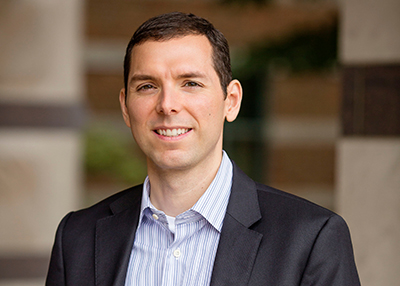Article

Professor Aron K. Barbey, the founding director of the Center for Brain Plasticity at the Beckman Institute and the Emanuel Donchin Professorial Scholar of Psychology, has been awarded the second annual Mensa Foundation Prize for making seminal contributions to the neuroscientific study of human intelligence, applying classic lesion methods and modern functional magnetic resonance imaging techniques to elucidate the neural architecture and network dynamics of general intelligence.
The $10,000 award recognizes applied and fundamental discoveries in areas such as brain-related research, creation of tools and mechanisms for advancing such research, or any significant research that leads to an improved understanding of human intelligence, including artificial intelligence. Discoveries must be documented in a major peer-reviewed scientific journal to earn consideration.
“Dr. Barbey’s work was unique in that he is a rare scientist studying actual human general intelligence and integrating its quantitative measure with a variety of biological experimental measures in a multidisciplinary model,” said Dr. Susan Stine, a medical doctor, neuroscientist and member of the Prize Committee. “I think Dr. Barbey’s ongoing experimental and creative activity indicates that we will see continued important contributions to the field going forward which would be a very good outcome for the Mensa Foundation Prize.”

Barbey will discuss his research and receive the award in July at American Mensa’s annual gathering in Phoenix. “A powerful insight for understanding human intelligence derives from the brain’s most unique and essential characteristic: plasticity,” said Barbey, who also directs the Decision Neuroscience Laboratory and is the group leader of the Intelligence, Learning, and Plasticity working group at Beckman. “The brain demonstrates a remarkable capacity to reconfigure itself — to continually update prior knowledge on the basis of new information and to actively generate internal predictions that guide adaptive behavior and decision making.”
“Contemporary research and theory conceive of the brain as a dynamic and active inference generator that anticipates incoming sensory inputs, forming hypotheses about the world that can be tested against sensory signals that arrive in the brain,” Barbey said. “Plasticity is therefore critical for the emergence of human intelligence — providing a powerful mechanism for updating prior beliefs, generating dynamic predictions about the world, and adapting in response to ongoing changes in the environment. The implications of this idea for understanding human intelligence and its origins in the flexibility and dynamics of brain networks will continue to transform the field in the coming decades.”
A full interview with Barbey is available on the Mensa Foundation website.
Beckman Institute for Advanced Science and Technology